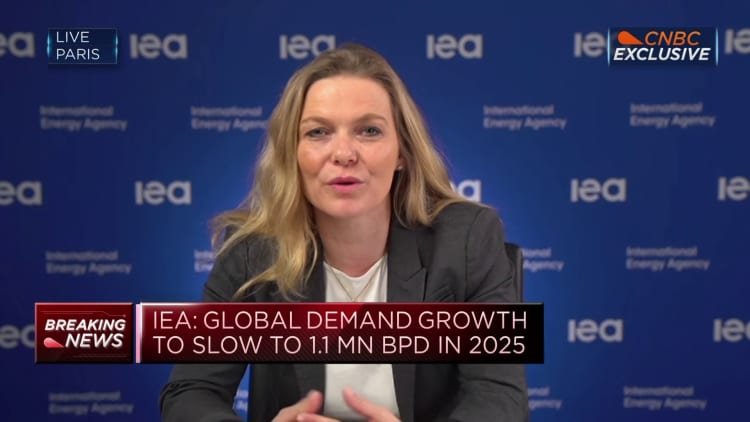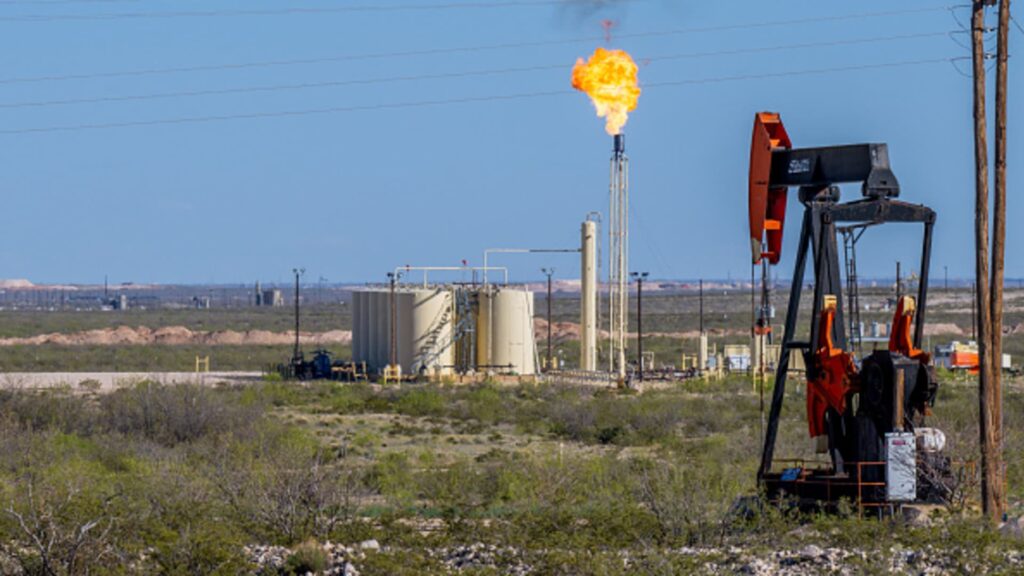
The International Energy Agency on Friday lowered its forecast for oil demand growth in 2024, citing “exceptionally weak” OECD deliveries, a largely complete post-Covid-19 recovery and an expansion of the electric vehicle fleet.
In its latest monthly report on the oil market, the International Energy Agency said that it had revised its forecast for oil demand growth in 2024 by about 100,000 barrels per day to 1.2 million barrels per day.
The global energy watchdog said it expects the pace of expansion to slow further to 1.1 million barrels per day next year “as the post-Covid-19 recovery comes to an end.”
The IEA report comes amid a rebound in oil prices due to rising tensions in the Middle East, with energy market participants closely monitoring potential supply disruptions from the oil-producing region.
Iran, a member of the Organization of the Petroleum Exporting Countries, vowed to respond after it accused Israel of bombing its embassy in the Syrian capital, Damascus, earlier this month.
The attack exacerbated tensions in a region already grappling with the ongoing war between Israel and Hamas. Israel did not claim responsibility for the attack.
International standard Brent Crude oil futures for June delivery rose 1% at $90.62 a barrel on Friday at 10:00 a.m. in London, while US West Texas Intermediate crude futures for May delivery rose 1.2% to trade at $86.07 a barrel.
“We are seeing an increase in [electric vehicle] Sales, especially in China and also in Europe, are already taking on demand for gasoline, but also in the United States, Toril Busoni, head of the IEA's Petroleum Industry and Markets Division, told CNBC's “Street Signs Europe” on Friday.
“There has been a lot of talk about sales not increasing as much as expected, but electric vehicle sales and increased fuel efficiency in the vehicle fleet are leading to lower gasoline demand, at least in advanced economies and especially in China.”
An oil pump is seen near the nearby Callon Petroleum area on March 27, 2024 in Monahans, Texas.
Brandon Bell | Getty Images
Asked about some of the key concerns regarding the security of oil supplies, Busoni responded: “Obviously we are watching the Middle East very closely. The ongoing attacks on tankers in the Red Sea are a major concern, but also the escalation of tensions between Iran and Israel.” “And then we see continued tensions between Russia and Ukraine, with attacks on Russian refineries.”
She added, “Therefore, there are several points of tension in the oil market today that we are closely monitoring, and they may have major impacts… if any major interruption occurs.”
